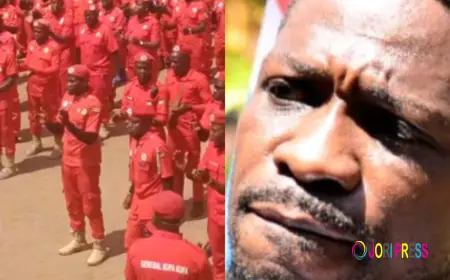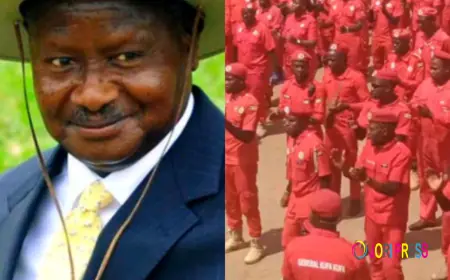Why is a Gaza ceasefire deal so hard to reach?


CAIRO, EGYPT | Xinhua | Two weeks after Hamas accepted a peace proposal mediated by Egypt and Qatar, Israel has yet to issue a formal response. Instead, it has focused on bolstering its forces around Gaza City in preparation for an expanded offensive to seize the enclave’s largest urban center.
Why has the ceasefire proposal — repeatedly revised and at times seemingly accepted by Israel in earlier rounds of negotiations — stalled once again, even as the immense suffering of both Palestinians and Israeli hostages grows and international calls for peace continue to mount?
Gaps too wide
The latest proposal was nearly identical to a previous one agreed by Israel, according to the Qatari mediators. It called for a 60-day ceasefire and prisoner exchange, under which Hamas would release 10 living hostages and 18 bodies, in return for the release of Palestinian prisoners and a surge of humanitarian aid into Gaza. During this fragile pause, negotiations toward a lasting truce were meant to proceed.
Hamas accepted this formula, a notable concession from its earlier stance that all negotiations must lead to a permanent end to the conflict. But Israel moved in the opposite direction, shifting its stance to endorse a “comprehensive deal,” one that would secure the release of all remaining hostages and dismantle Hamas entirely.
Israel’s demand marks a sharp departure from its previous position that it has been upholding over the first year of the conflict, which favored a temporary ceasefire to secure the release of some of its hostages, while maintaining the ability to resume the fighting. During the previous two ceasefires in late 2023 and early 2025, over 100 hostages were released.
Critics argue that the shift of stance could be a deliberate strategy to prolong the conflict, as a comprehensive deal is a much more complicated one to achieve, if achievable at all.
Israeli Prime Minister Benjamin Netanyahu’s call for a resumption of talks might be a “buying time” tactic, using the discussions as a distraction while Israeli troops advance toward seizing the entire enclave, The National, an Abu Dhabi-based newspaper, quoted sources as saying.
Elusive as a short-term pause could be, a permanent truce is even further out of reach.
Netanyahu has repeatedly outlined war-end conditions rejected by Hamas: Hamas must disarm, relinquish its 18-year rule over Gaza, and cede security control to Israel.
Hamas, while signaling willingness to step aside from governing Gaza, never agrees to demilitarize, viewing such demands as tantamount to surrender. In early August, the group said in a statement that it would not disarm unless a Palestinian state was established, a term also categorically rejected by Israel.
Perpetual politics-motivated war
In an apparent move to escalate the offensive and further stray from negotiations, Israel has summoned about 40,000 reservists, the largest single call-up since the war began nearly two years ago, as part of its plan to capture Gaza’s largest city — a move approved by Netanyahu’s cabinet despite international warnings.
Addressing soldiers in a video statement on Tuesday, Netanyahu said that the military had advanced “toward a sweeping victory.”
Behind Israel’s hardened stance is the political pressure from its right-wing parties in Netanyahu’s coalition, which advocate for Hamas’s complete dismantlement and permanent control over Gaza.
Netanyahu’s political survival hinges on this fragile coalition. A ceasefire perceived as a compromise could prompt far-right ministers to collapse the government, a risk he has been trying hard to avoid.
Israeli National Security Minister Itamar Ben-Gvir’s Otzma Yehudit party quit the government in January to protest a previous ceasefire deal, only returning in March with the resumption of hostilities. Finance Minister Bezalel Smotrich kept his Religious Zionism party in the coalition for the ceasefire but has repeatedly threatened to leave if Israel ends the war without defeating Hamas.
Having been facing corruption charges since 2020, Netanyahu would lose the power to influence judicial appointments and legal proceedings if out of office. In 2023, before the Gaza conflict erupted, his government had attempted controversial judicial reforms widely seen as aimed at weakening the judiciary. The move sparked mass protests across Israel until the sudden Hamas-led attack on Oct. 7, 2023 diverted public attention.
On the timing of Israel’s military moves alongside lingering ceasefire talks, analyst Adel Abdel Ghafar told Al-Jazeera the Israeli government wants to keep discussions going, “because it also has a domestic constituency that wants the hostages released.”
“But the right-wing of the government wants to also forge ahead with this takeover of Gaza, not just Gaza City.”
Self-interested hegemon
Under mounting domestic and international pressure, multiple European countries that once firmly backed Israel are now shifting their positions, calling for an end to the war and blockade in Gaza. Several have even signaled readiness to recognize a Palestinian state at the upcoming UN General Assembly in September.
Yet, despite this growing international consensus, the United States, with unparalleled influence over Israel, remains steadfast in its support.
“We will only see the return of the remaining hostages when Hamas is confronted and destroyed!” wrote U.S. President Donald Trump on social media in August, reiterating support for Israel’s hardline stance.
Observers argue that since the outbreak of the latest Gaza conflict, Washington has consistently shielded and supported Israel, supplying it with military aid and political cover that have left the Israeli government undeterred.
The United States spent 17.9 billion U.S. dollars in military aid to Israel from October 2023 to October 2024, according to the Costs of War Project at Brown University. In late February, the Trump administration also approved an additional arms sale worth nearly 3 billion dollars.
On the diplomatic front, Washington has repeatedly vetoed UN Security Council resolutions demanding a ceasefire and imposed sanctions on International Criminal Court judges and UN special rapporteurs seeking to hold Israel accountable for alleged war crimes.
Analysts point out that Washington’s unwavering support stems not only from the deep interconnection of political and business interests between the two countries and from Israel’s powerful lobbying presence in the United States, but also from shared strategic objectives. The U.S.-Israel alliance, rooted in realpolitik, is widely seen as a key obstacle to resolving the Palestinian question.
“The ultimate goal is to systematically embed Israel into the regional framework — not merely as a participant, but as a dominant actor capable of steering the region’s future in alignment with its own interests. All of this is to unfold within the broader architecture of continued American hegemony over the Middle East,” said Mohamed El-Dewery, deputy general manager of the Egyptian Center for Strategic Studies. ■





















































